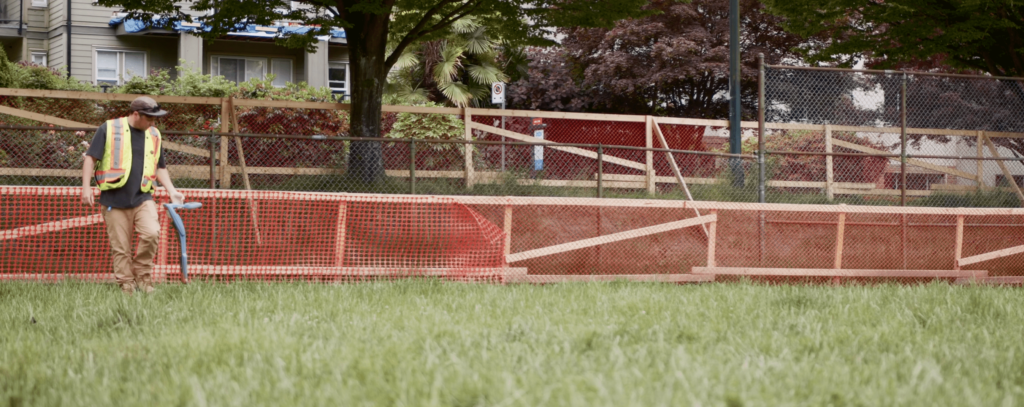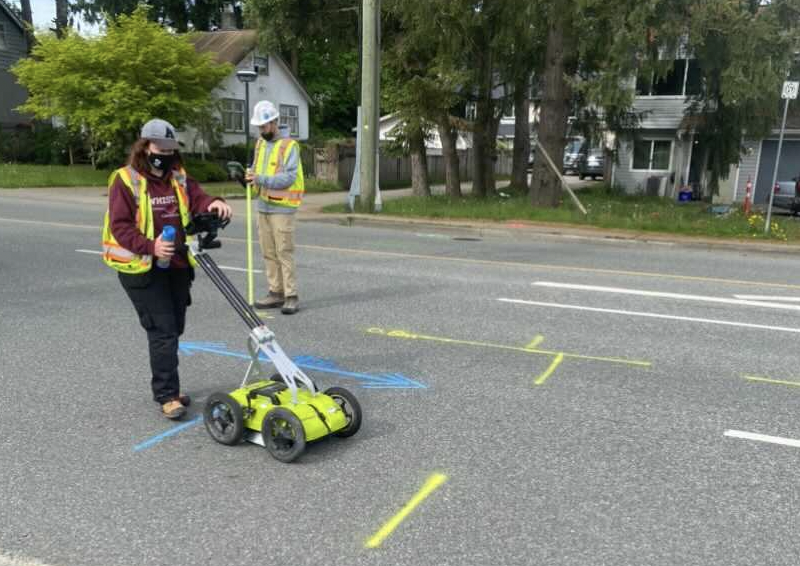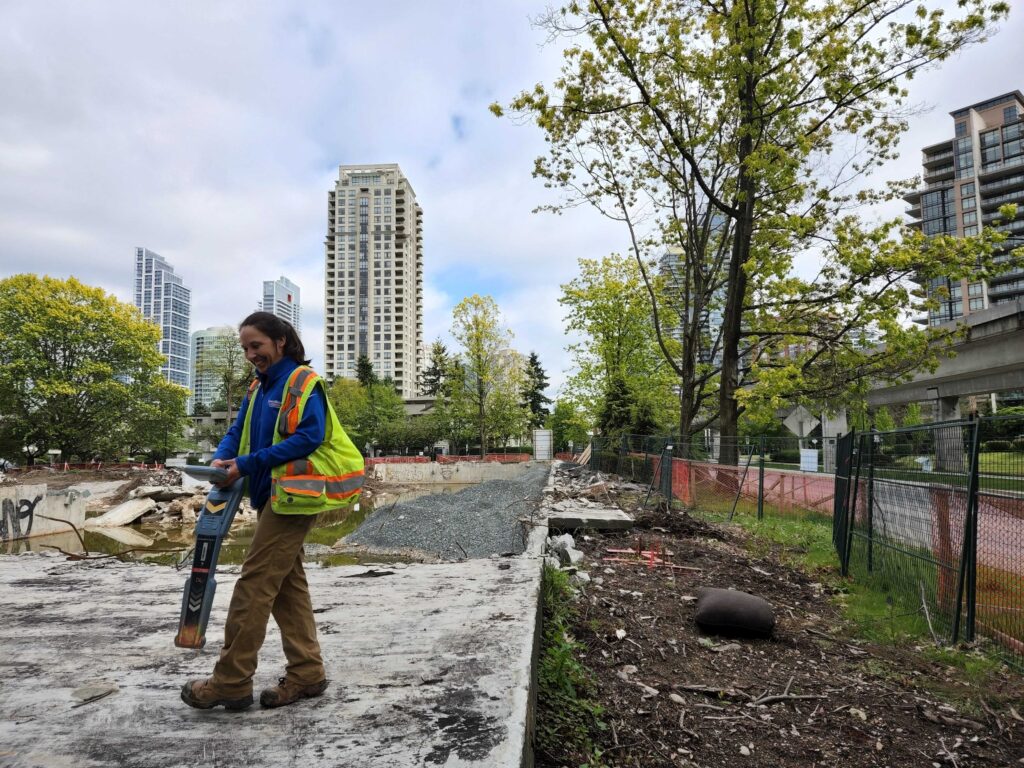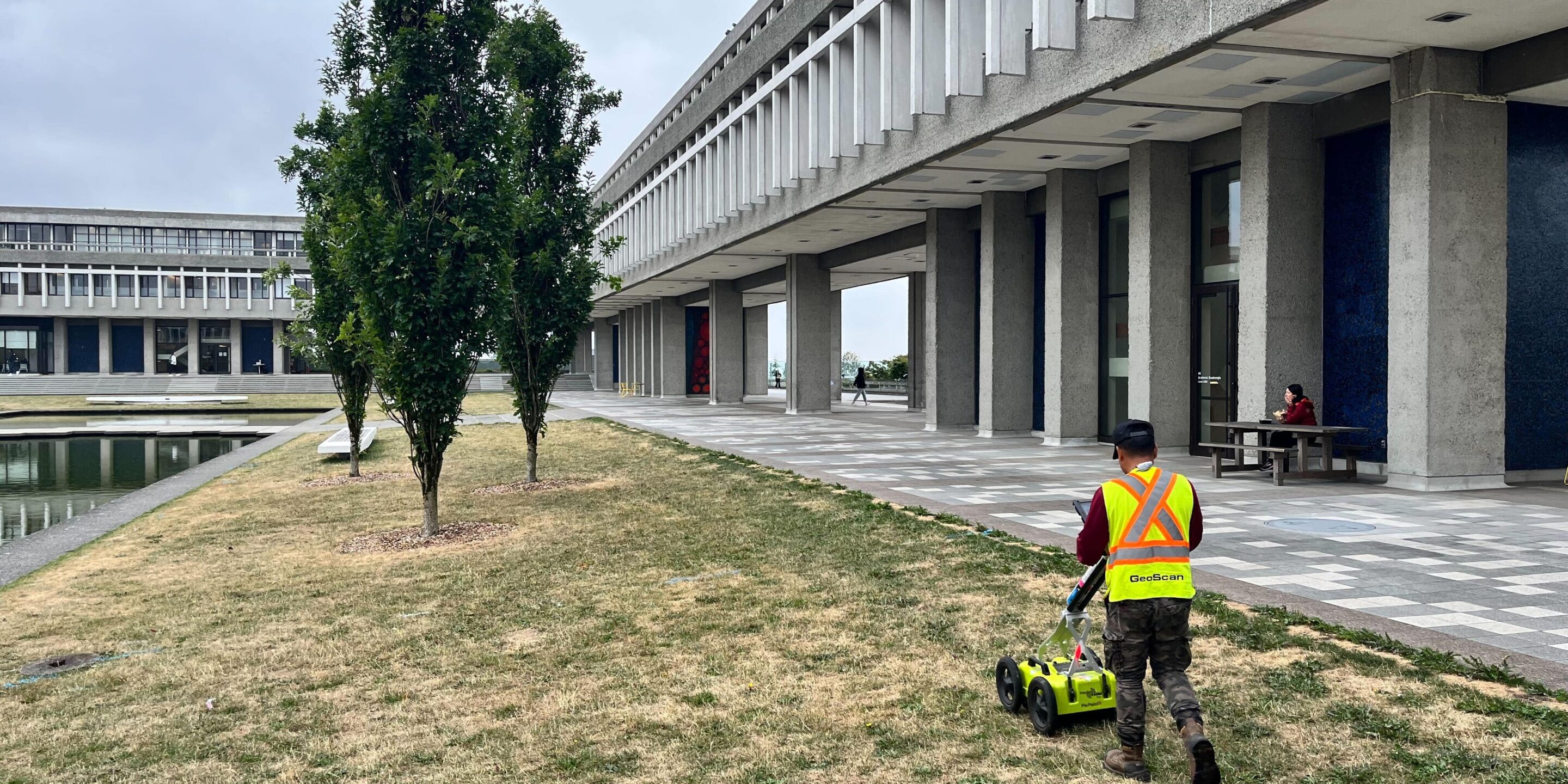You’ve been exploring new career paths and underground utility locating has piqued your interest.
The prospect of working outdoors and using cutting edge geophysical equipment is highly attractive to you. So far so good right?
The life of a locator is one where you will face new challenges every day. It can be a hugely rewarding profession for those who want to challenge themselves both physically and mentally. Are you still with us? Good – keep reading because this article should give you a sense of whether or not being a utility locator is for you.
What does an underground utility locator actually do?
Before any excavation or digging takes place on a construction site or a residential project, a qualified utility locator should be called to map the subsurface. Utility locating technicians utilize methods such as ground penetrating radar and electromagnetic induction to identify and label underground utilities. Typical underground infrastructure includes service lines such as:
- Communication lines
- Electrical power lines
- Water and irrigation pipes
- Sewers and drainage
- Gas and oil lines

GeoScan technician uses EM to look for irrigation lines
As the technician surveys the site, he or she will identify and mark the utilities on the ground with paint. These marks will signify the type of underground pipe or line, the utility owner, and their depth. The utility locator will then compile a report, along with a sketch of the area and photos of the site. With this report in hand, contractors can safely drill, shore, excavate, and tunnel knowing the location of the various subsurface infrastructure on their site.
Essentially, utility locators specialize in risk mitigation and damage prevention. Most of their work is performed in the field, but much of their time is also spent interpreting site plans, data, drawings, and maps. Although they visit various work sites and are required to spend long periods of time on their feet, locators must also be comfortable working in an office setting. Writing reports and providing analysis of their findings is a huge component of the job.

Jess uses ground penetrating radar to locate underground utilities such as gas and water lines
What makes a good utility locator?
You need to be a self starter, willing to work independently, and enjoy solving problems. Locators should also be effective communicators who can cater to multiple stakeholders. Being able to tell clients what they need to hear, rather than what they want to hear is essential. Public safety should always be the priority when locating utilities.
We asked a few of our field technicians for their take on what traits make a good utility locator.
Liz Steinburg, Utility Locating Technician (RULT)
It’s important to be nosey, notice things that others don’t, and be willing to get your hands dirty. Locators also must be okay dealing with uncertainties. They need to be able to solve problems in real time and pivot on a dime.
Louise Hufnagel, Technician Trainee, Utilities
You need to be comfortable working under pressure. If you miss a line on your locate and your client hits something when digging, there can be significant risk to those involved, as well as the general public.
Jeremy Sept, Division Manager, Utilities (RULT)
I would say that every utility locate is like a puzzle. Someone who excels at utility locating is naturally curious and is able to put together all of the pieces. The greatest strengths a utility locator can have is the ability to think critically and problem solve. I always liked that I got to be a bit snoopy. You really need to investigate every aspect of a property.

Liz performs a subsurface scan of a development lot in Brentwood
Do you need a background or education in underground utilities?
A specific background or education is not required in order to become a utility locator. GeoScan for example, has locators on the team with varying educations and levels of experience. From academics to part-time ski instructors and former teachers, our utility locating division has characters from all walks of life.
There are some useful assets that would give you a head start in the field. Experience in geophysical surveys, land surveying, or geomatics is valuable. If you have some previous locating experience, possessing a RULT certification or ORCGA DPT 100 or 200 increases your hireability substantially.
With all this taken into account, do you think utility locating is for you?
If so, browse our careers page and apply for one of our open positions. We’re always looking for professionally driven, curious individuals who are eager to learn.
